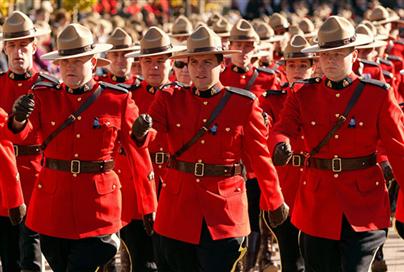This blog has outlined the development of the Sinaloa Federation's presence in Mexico beginning in earnest about two years ago and intensifying ever since then. I'm not going to rehash what I've written in this blog. If you're interested enough, you can scroll down and read it to establish that for yourself.
CONTEXT AND PRECEDENCE
Mexican Immigration to Canada in 2005 was the first phase of the establishment of the Mexican drug trade that we are seeing in a mature environment in Canada today. Joaquin Guzman Loera (El Chapo) bought his first ranch in Mexico in 2005. Mexican citizens began to enter Canada 'fearing for their lives' and were accepted by the Canadian government as refugees. This trend continued unabated until July 2009, when the Canadian Government instituted a requirement that Mexican citizens traveling to Canada obtain a visa. Mexican refugee claimants, represent 25% of the total Canadian asylum petitions. Even though 90% of those are ultimately rejected, refugees/asylum applicants continue to stress the over taxed Canadian system.
What do cartel members awaiting adjudication from Canadian authorities do while on parole status? They traffic narcotics and receive public assistance payments from a generous and naive Canadian system.
Historically, the primary conduit for the conduct of the smuggling operations were well organized Asian gangs on the Canadian side of the border. That balance tipped beginning in 2010 when very well trained, experienced Mexican traffickers entered the business of trafficking through Canada into the US began to switch on. Canada is the path of least resistance. Canada is also not the market. Canada has 34 million citizens. California alone has 38 million residents. The drug cartels will sell to Canadians, but the market is a small fraction of the size of the US so cocaine, methamphetamine products and opiates bound for Canada usually re-enter the US.
3. Kind and Gentle Canada
Canada is no stranger to organized crime. Their efforts against motorcycle gangs, the Italian Mafia, and more recently in their history, against Asian gangs has been moderately effective. They are NOT ready for the destabilizing effect on society that is being fashioned by highly-organized, violent criminal cartels from Mexico.
Many drug cartels, including the Sinaloa Federation use contract intelligence people from the former Soviet Union including Ukranian GRU and KGB operators. They are not Asian gangs and they are not bikers. They are PROFESSIONALS. Canada isn't ready. Reliance on USGOV agencies such as the FBI or the Customs and Border Protection Service is thin because they themselves are ham handed when it comes to interdicting or impacting drug cartels. The US track record is not impressive.
4. Impact on Legal Trade
The US has begun to react to the new threat from Mexican Cartels moving narcotics through Canada by "thickening" their border defenses. Trade between Canada and the US has decreased by twenty percent over the past five years. Part of this is due to the security barriers that also impact legitimate trade by simply making it 'harder' to do business. And I'm not only writing about this difficulty, I've experienced it.
TODAY
2.jpg/300px-HMCS_Algonquin_(DDG_283)2.jpg) |
| DDG 283 HMCS Algonquin |
Canada has participated in the North American Maritime Security Initiative (NAMSI) and last year the HMCS Algonquin participated in counternarcotics patrol work in the US Mexico Pacific Border area. It was a symbolic step (at best). None of it addressed the endemic corruption in Mexico and the folly of relying on Mexican Navy (SEMAR) allies for accurate and timely support. That's not to say that all of SEMAR is corrupt. It's not. Enough is to make it (and the rest of MEXGOV) unreliable (I'm trying to be kind here).
Canada is trying to implement a species of trilateral security to protect its interests and while that is the only way to proceed, what they are doing is not having ANY impact on the Sinaloa Federation's operations within its borders. The Canadians need to up their game if they want to play in the big leagues.
The only game in town is HUMINT. It's expensive, it's exhausting, it's difficult, but no other method is likely to work. The RCMP won't be able tell the players without a program and Canada either enters the Great Game or they reap the whirlwind.


No comments:
Post a Comment